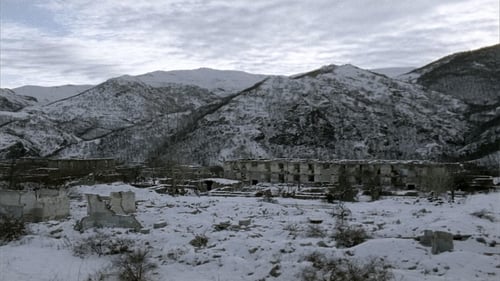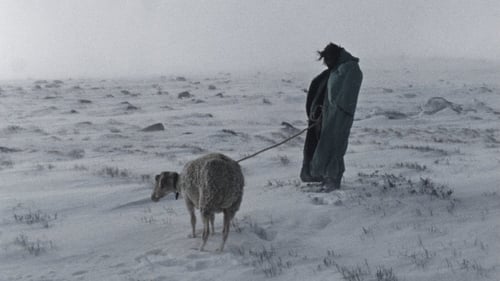
Editor
45,000 patients died in French psychiatric hospitals between 1939 and 1945. A single site escaped this carnage: the asylum in Saint-Alban, an isolated village in Lozère. What happened there for it to be an exception? Retracing several decades in the history of this important site of psychiatry, using precious archival films and the accounts of those who worked there, Martine Deyres answers this question and, in doing so, shows how the political courage and poetic audacity that were practised there contributed to changing medicine and society’s perception on madness. Intersecting in the crucible of this movement called “institutional psychotherapy” were members of the Resistance, artists, doctors and philosophers—including Paul Eluard, Tristan Tzara and Georges Canguilhem.

Editor
A border inspection at Ventimiglia, between Italy and France, turns into a fantastical fairy tale narrated by a chorus of frogs, wherein a scientist experiments with rejuvenation techniques using monkey testicles. Dr. Voronoff was a real person, and was world-famous in the 1920s. His villa stands on the border where migrants try to cross. But it is as if they do not exist.

Editor
The filmmaker Théo Angelopoulos died on January 24th, 2012, knocked down by a motorbike on the set of his final film. In his unfinished film, he was telling the destinies of the victims of the Greek crisis. The list of victims of the crisis has only grown longer, this destitution echoing another that Théo had sensed was coming: that of the massive arrival of refugees who find themselves trapped in Greece by the closure of the borders. Yet citizen resistance is being organized and fights every day to bring those in danger of obliteration out of the shadows. Ironically, the ambulance supposed to come to his rescue broke down because budgetary restrictions had made it impossible to maintain the vehicle. The crisis itself killed Théo. This is a letter addressed to him in the form of a film.

Editor
We know what labour wreaks on the body, but what less visible imprint does it leave on the unconscious? The nights of twelve dreamers – sometimes recounted in front of the camera, sometimes with a voice-over that accompanies shots of office buildings or urban worksites – reveal how the capitalist system invades the modern-day psyche. Long shots of edifices with smooth surfaces and sheer edges instil a deceptive gentleness. Zombies, corpses, mummies, ghosts, skulls sliced open like an egg and emptied by spoonfuls… The images follow one after the other, no two alike, but the editing organises a gradation towards the vampirism and an insidious passage from night to day, from dreams to real working life.

Editor
Human beings who have experienced such a strong shock that they are no longer even afraid of death (as it often happens to genocide survivors) sometimes fall into what is known as a feeling of timelessness or a “melancholy”. They live somewhat “outside” time, a mode of extra-temporal existence, waiting for the day on which they will be freed from their suffering. It is the people — almost ghosts having survived the conflict in Nagorno-Karabakh between Armenians and Azerbaijani that has lasted for almost twenty years — that the filmmaker shows and listens to in his film. Behind them, behind their wandering bodies, behind their frenzies, is what remains of the collapse of the Soviet Union in Caucasus: ruins, uninhabited spaces, tombs, vestiges of war, trenches where soldiers watch for an invisible enemy.

Editor
The history of barbed wire, whose use dates back to the first settlers of the Wild West, always driven by their reckless and ruthless spirit of conquest and selfish ambition to leave their mark on wild lands; of its relationship with politics and mercantilism; of the perversion of the millenary relationship between men and animals; of the evolution of surveillance techniques. Fences and borders: the tragic tale of the enclosure of the world.

Editor
Guided by the sheepbells of a flock and by the evocations of the lost, this film is a voyage through storms; those of the mountains and winter, those of bodies and souls, those which remind us that which nature has not obtained from our reason, obtaining from our madness.

Editor
The simplified black-and-white documentary challenges the viewer to hear the story of the Sahrawi people.

Editor
Le Cercle des noyés is the name given in Mauritania to black political prisoners imprisoned from 1987 in the old colonial fortress of Oualata. This film touches on the fragile process of unveiling memories by one of these former prisoners who remembers his story and that of his companions. In a visual echo, the places of their confinement come one after another denuded from any traces of that past.

Editor
I travelled across Mauritania to find a tree that I saw from my window in Belgium. It wasn't a mythical tree, but rather one that could be anywhere. On my way, I met men and women who shared their perception of this quest and in doing so, in a roundabout way they shared some of their visions of the world and of existence. For some, my tree was the sign from the spirits, of the invisible or a call from light. For others, it was the symbol of a history, a culture or the end of a period in time. For yet others, it was a tree that you see only when you get lost...

Editor
Documentary depicting the filmmakers' efforts to find a nomadic Mauritanian family they had filmed six years earlier in order to show them the recorded footage.

Editor









